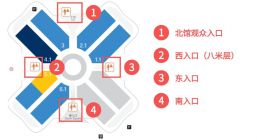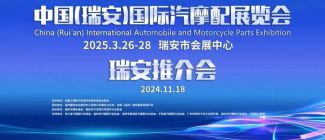Recently, it was revealed by the media that one of the "Japanese Big Three" will attend Huawei Smart Drive. Once the news spread, it sparked heated discussions in the industry. According to interpretation, the "Japanese Three Mothers" refer to the three models of the Toyota Reiling, Sylphy, and Corolla, respectively from GAC Toyota, Dongfeng Nissan, and FAW Toyota.
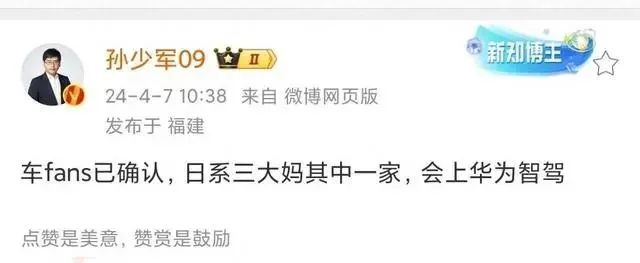
Due to the fact that all three car companies are joint venture brands, if we consider the relationship between GAC, Dongfeng, FAW, and Huawei behind them, GAC Toyota and Dongfeng Nissan are the most suspected. Specifically, the intelligent cockpit of the ninth generation Camry was developed by Toyota and Huawei, while the relationship between Dongfeng Group and Huawei is equally close. Currently, Lantu and Mengshi have gradually joined the HI mode. Of course, the answer is still to be revealed.
Huawei Smart Driving, the Japanese "antidote"?
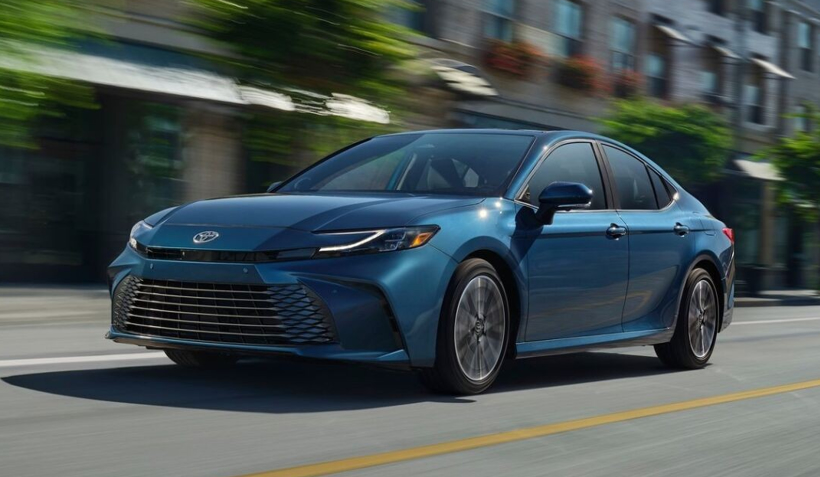
Looking at the sales performance of Japanese brands in China in recent years, it can be said that they have been declining day by day. For example, Dongfeng Honda's sales in March were only 28000 units, a year-on-year decrease of 51.5%; Nissan's sales in China in March were 87000 units, a year-on-year decrease of 32.6%; Guangzhou Honda's sales in March were 32000 units, a year-on-year decrease of 50.1%.
In fact, when domestic brands crossed the 50% market share threshold last year, it meant that the long-term dominance of joint venture brands in the Chinese market was completely disrupted, and their market position was in jeopardy.
On the surface, behind the decline in sales of the Japanese camp is nothing more than a failure in the development of electrification and intelligence.
In order to avoid being eliminated by the Chinese market, various Japanese car companies are actively self rescue, focusing on the new energy field and intelligent driving, but so far, they have not shown much impressive performance.
In this context, seeking help from Huawei is undoubtedly the preferred choice. After all, once Japanese companies join Huawei's BU camp, whether choosing component solutions or HI models, there is an opportunity to shorten the development time of intelligent driving and quickly align with the market. For Huawei, Japanese car companies still have a considerable market share in China, and if cooperation is reached, they can also obtain good profits.
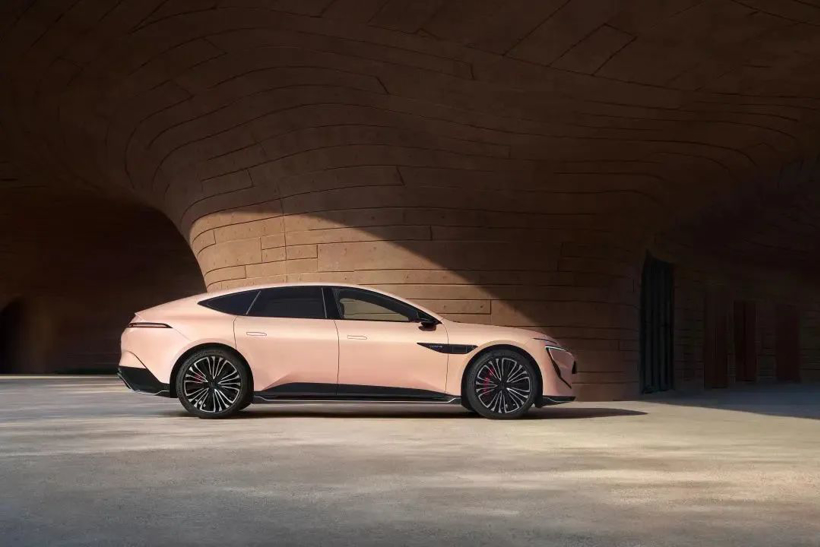
"1+1 ≥ 2" is a situation that everyone hopes to see. However, behind the seemingly "win-win" pattern of Japanese holding hands with Huawei, there are unimaginable operational difficulties.
For example, even if Japanese brands use Huawei's intelligent driving system to make up for their shortcomings, it is still a major test for car companies to fully leverage their product strength. Previously, the three electric systems used by FAW Toyota bZ3 were all from BYD. However, with the same core components, due to issues such as product price, design, and naming, there was a significant sales gap between bZ3 and BYD products of the same level.

Similarly, even if Japanese car companies, like brands like Wenjie, use Huawei's intelligent driving system or HarmonyOS cockpit, they will ultimately be unable to leverage their advantages due to other product issues. At the same time, there is a fundamental difference between automotive products and electronic consumer goods. As the second largest consumer product after real estate, users will be more cautious when choosing and will not blindly place orders due to the installation of Huawei's intelligent driving system.
In other words, adopting Huawei's intelligent driving solution only solves the obvious "shortcomings" of Japanese brands. The reality is that Japanese brands not only need to advance in technology, but also urgently need to optimize their service system.
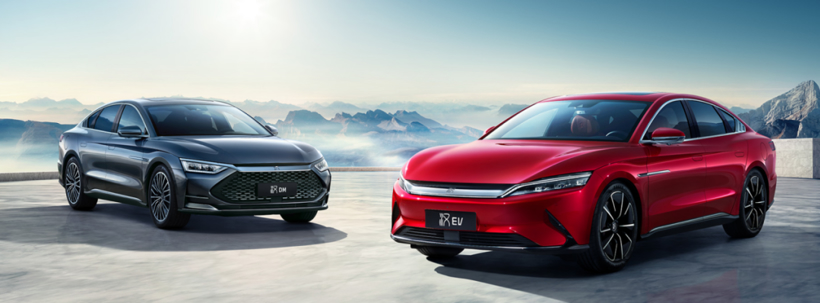
The "Soul Theory" still exists, between the success and failure of the joint venture
In fact, in addition to component solutions and HI mode, Huawei Car BU has a third solution that can break through the dilemma - by joining the Huawei Smart Car Selection mode, Huawei participates in deep product customization from the inside out.
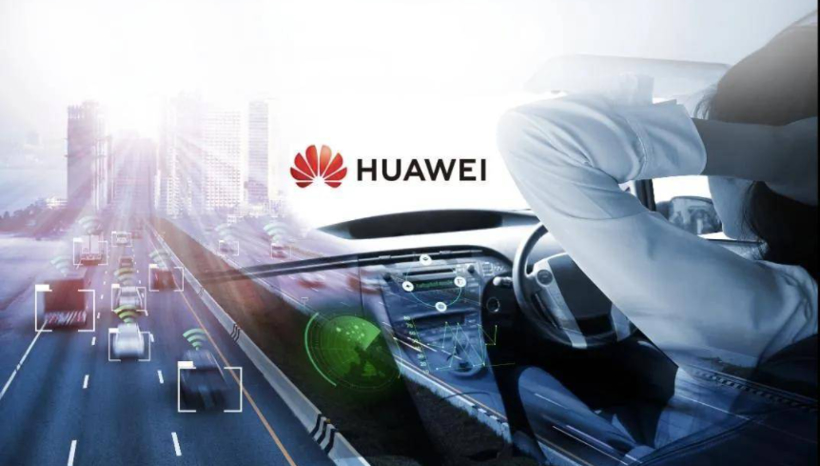
Obviously, in the eyes of many joint venture brands, this plan has already been put to death. As is well known, the reason why many joint venture brands have gone from prosperity to decline is mainly due to disputes over control between the two parties. Based on the strong performance of Huawei in the previous cooperation between Chery and Huawei in the smart world brand, it can be concluded that Japanese brands are unwilling to be constrained by Huawei.

In summary, the adoption of Huawei Intelligent Driving by Japanese brands can be seen as an affirmation of Huawei's strength in the field of intelligent driving. However, simply adopting Huawei technology alone cannot solve the problem. At the same time, facing the successive attacks of domestic brands and the strong rise of brands such as Wenjie, it is not ruled out that some members of the joint venture camp are willing to give up their "soul" and join Huawei Smart Selection.
AMS2024 Exhibition Guide | Comprehensive Exhibition Guide, Don't Miss the Exciting Events Online and Offline
Notice on Holding the Rui'an Promotion Conference for the 2025 China (Rui'an) International Automobile and Motorcycle Parts Exhibition
On September 5th, we invite you to join us at the Wenzhou Auto Parts Exhibition on a journey to trace the origin of the Auto Parts City, as per the invitation from the purchaser!
Hot Booking | AAPEX 2024- Professional Exhibition Channel for Entering the North American Auto Parts Market
The wind is just right, Qianchuan Hui! Looking forward to working with you at the 2024 Wenzhou Auto Parts Exhibition and composing a new chapter!
Live up to Shaohua | Wenzhou Auto Parts Exhibition, these wonderful moments are worth remembering!
Free support line!
Email Support!
Working Days/Hours!
